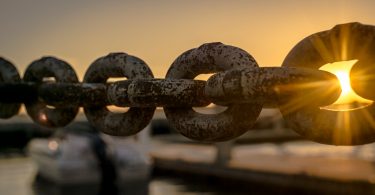Known by several names (ISIS, ISIL, Daesh, Islamic State), the Islamic State now controls parts of Syria and Iraq that combined cover an area larger than England, Scotland and Wales.
How the size of the Islamic State territory compares to that of other countries http://t.co/ZQaiMDK9rQ pic.twitter.com/ZIFbTQV1NB
— Washington Post (@washingtonpost) September 12, 2014
It is a group that has caused great fear and also intrigue; boasting a salafist ideology that is very, very similar to the one followed in Saudi Arabia (Wahhabism, although there are some major differences), ISIL want to force those who live in its territory to live in a way that harks back to the early days of Islam, in the 7th century A.D.
Originally an offshoot of Al-Qaeda, ISIL first appeared in Anbar province, in western Iraq, in 2013. Taking advantage of a power vacuum of political protest and lack of communication, the Sunni group quickly spread throughout the province and into neighbouring Syria and now control an area spreading from the Turkish border down to Raqqa in Syria and stretching east into Iraq and heading towards the Iraqi Capital Baghdad.
Those who do not pledge allegiance to the caliphate are considered enemies, Women are treated as chattel (the property of the husband) and cannot leave the house unless accompanied by a male relative, and anyone deemed to be a pagan (Such as the Yazidi community), can be bought and sold as slaves while others have to pay a tax (the jizya tax) to ISIL to be able to stay in the area. Punishments such as beheadings, flogging and amputations have become almost routine as the rest of the world watches from afar, unable to divert its eyes.
Around six million people live in the occupied area, and, while there are some highly publicised actions that have been promoted by the group, it is the accounts of a few brave individuals who are telling the world about life under ISIL.
Stability
The accounts that have come out describe how ISIL do not enforce most of their harsher laws until they have total control of an area. There are also accounts telling of how ISIL gain support by offering a form of stability that the locals that may not have been there for years. They fix potholes, provide local services, install power lines and even run a bus service in their territories. They are also so forceful in the implementation of their rules that the local population believes them to be more powerful than they actually are.
ISIL run their own social media accounts, and will regularly post photos and videos of them destroying historic sites such as Palmyra. Such actions show their determination to completely destroy everything so that they can build the society that they want.
The Independent have begun a series of articles about life under ISIL, and how the locals are seemingly trapped no matter who is in charge. As one man said: “we need Isis to save us from the government but that doesn’t mean that we completely support them”. One very good account that reports on life under ISIL control is called Mosul Eye who even posts pictures of the identity cards and gives a detailed account of everyday life and what happens in Mosul
Even though there are no official records, the estimated value of all of the assets under the groups control US$2 trillion although reports vary greatly on this subject (a breakdown on their finances can be found here)
What can be done?
Groups like ISIL thrive on fear and chaos, and their actions are certainly creating a lot of both. Recent events only highlight the fact that one person or a small group can cause a lot of damage, pain, confusion and suspicion; these ‘lone wolf’ attacks are all the more concerning because they are less likely to be picked up on by the authorities; no one is quite sure on how to tackle this problem.
A few months ago in uni I was in a human rights lecture and we were talking about how to deal with fighters returning from Syria. Out of a class of at most twenty people, three Asian men and I were the only ones who advocated talking to the fighters to try and find out why and when they became radicalised, and asking them for advice on how to stop more from going. One person was so against the idea she called us sick in the head for even suggesting it; everyone else stayed silent.
I have seen this resistance before, Soldiers were sent out to Iraq or Afghanistan and got injured or killed. Their friends and family look for someone to blame out of anger and their gaze has fallen on the Muslim (and the wider Asian) community. This in turn is adding to feelings of isolation and distrust, and some feel that since they have been labelled as terrorists anyway, they get drawn to the groups who offer them a sense of acceptance and belonging (NOTE: obviously the reasons are much more nuanced but I am not going into that now).
It is a never ending cycle of violence which is just what the extremists want. If ISIL and other groups can get the rest of the world to hate Islam, then they will welcome angry young Muslims with open arms.








